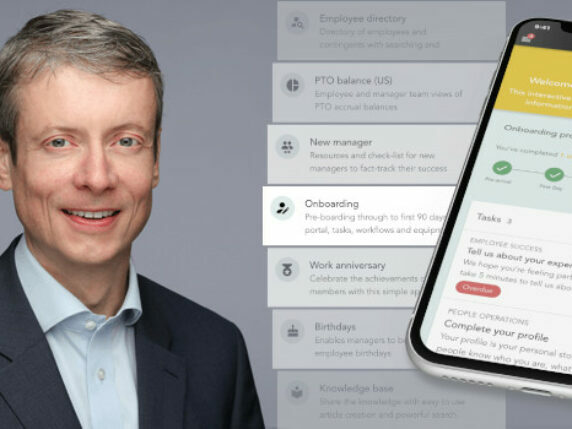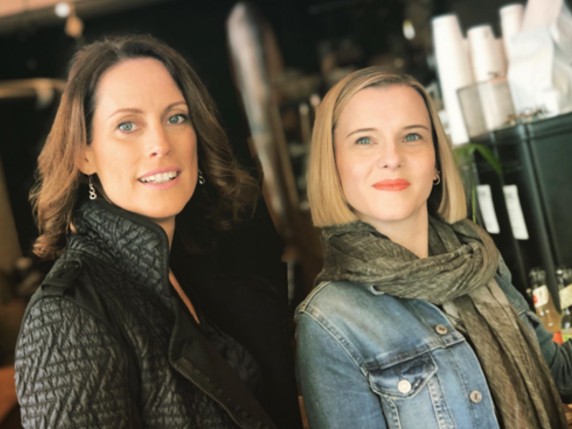Our popular Meet the client series reveals the inside story on the companies we support with legal services. We caught up with Ivan Harding, co-founder of Applaud, about entrepreneurship, how his company do digital HR differently and navigating the challenges posed by the coronavirus.
Name and job title
Ivan Harding, Co-Founder and CEO, Applaud
What is it your company does?
Applaud makes digital HR simple for large businesses. Many organisations of 5,000 plus staff have a complex landscape of systems and processes in place when it comes to their HR technology. Intranets can be a sprawl of information and links. Our product brings everything together in one place: it’s an experience that’s well-designed, streamlined and responsive across devices.
Who do you work with?
I usually say that we’re a horizontal software provider: we sell across all industries. Our main client base is large organisations and the average workforce of our clients is around 8,000. We supply to the National Trust, Scottish Power and Experian in the UK, and Estee Lauder, CBS and McKinsey and Company in the US. We attract customers who have large non-office-based workforces, because our mobile product is a real enabler for these organisations. Our clients tend to be those who value their brand highly, and are keen to make sure that’s reflected in their employee experience.
How long have you been in business and how has your business grown?
Myself and my co-founder Duncan set up the business in December 2008. We were still working full-time for the first year of Applaud, which we set up after seeing a gap in the market and an opportunity to sell to large businesses. We initially made a name for ourselves in mobile apps; we released our first business mobile apps in 2010 which got a lot of attention yet were too early for wider adoption – enterprises weren’t ready for mobile back then. Applaud is a bootstrap – we’ve never sought investment or borrowed. There are pros and cons to this model, and I wouldn’t do it like this again, but it was right for us at the time! Growth is slower, but you get to take more time with decisions. We’ve always been profitable, and have re-invested our profits into hiring people. Our growth has been 50-75% year on year over the past three years. The turning point came in 2015, when we set up our offshore office in India. That decision really transformed how we grew.
What inspired you to start your business?
It was a few things really. Back in 2008, Dragon’s Den and the Apprentice were in the national conversation, the App Store had just been launched and BlackBerry was everywhere. As a software contractor at the time, I could see a gap forming for larger businesses who were interested in their internal brand and an increasing desire to provide the same digital experience to employees as they did to their customers. Myself and my co-founder Duncan were early adopters of the iPhone and could see real potential with mobile, but software companies were far away from considering mobile applications as products to develop. We took some products to market: some worked, some didn’t. We sold enough early on, kept pivoting, and made enough money to make our first hire.
What have been the biggest recent challenges you have faced and how did you overcome them?
When COVID-19 hit, our initial thoughts were will we survive? We quickly answered that, as our business is successful, profitable and well-rounded, so yes. We do rely on conferences for selling our products though, which normally take place in the spring and autumn. Our sales cycle takes about six to nine months from lead through nurturing and conversion, so we are facing uncertainty there, as we don’t know how the conferencing calendar will be affected, not just this year but next too. Like many others, we’ve also faced difficulties collecting payments during coronavirus, which affects our ability to hire and ultimately our growth. But we run our business prudently and make sure there is cash in the bank. I expect that we’ll adapt our business plan goals to account for 2020. We expect to see growth but not as much as we planned for at the beginning of the year.
We conduct a lot of international work – 50% of our clients are in the US, and 30% in the Middle East. That brings its own challenges around work culture and contracts. Also setting up our offshore office in Hyderabad, while it’s transformed our business, it was challenging at the time. There’s no official support or mentorship when it comes to establishing an offshore operation, so when it comes to navigating the legalities and bureaucracy of it all, you’re on your own. The good news is that our team in India have been amazing at adapting to home-working during lockdown, as remote working isn’t that usual there.
What are your hopes/goals for the next 1-3 years?
We have revenue, client and hire targets for the next three years. We currently have 50 active clients and we’d like to double this in two years. We have the same in mind for our revenue – to continue increasing it year on year by 50%, and we’d like to hit 100 staff by 2023 (we currently have 60 full time employees). COVID may mean we scale back our forecast of course. Seeing a growth adviser made a real difference to how we planned in the business. They conducted a deep-dive of our operations and advised us to sort out our business governance. Once we’d got on top of our finance and forecasts, we looked at strategy and business planning. We have six critical success factors that we review regularly, in every board meeting, which tells us where we should be hiring, the products we should be making and which customer segments to focus on.
What has it been like to work with Harper James? Tell us about your experience.
We mainly work with Rob Cobley and Ed Kilner from the commercial technology team, but we’ve also had advice on employment law and disputes from your other teams. I’ve not seen anything like the commercial model Harper James Solicitors operates. I feel like I have a virtual team who are there when I need them. I don’t need to worry about how much it will cost if I need to fire off a quick email. Harper James gives me confidence. It’s an excellent experience.
How has working with Harper James benefited your business?
It’s a flexible model that goes across the different law practices – I found it liberating. We often need legal advice quickly, especially during sales with new customers, and Rob is very responsive and always available for meetings. When I was looking for a law firm, I wanted that full range of services, as I knew we’d need advice outside of the tech remit. The flexibility has been really positive.







